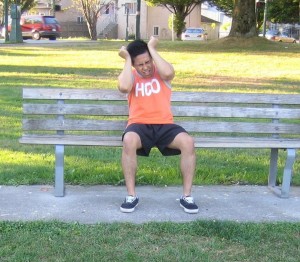Rosacea is a skin condition that causes redness in the face and sometimes produces small, red bumps that are filled with pus. Fair-skinned and middle age women are more susceptible to this condition. An untreated rosacea can become worse and symptoms can flare up for a period of weeks and even months and then will diminish, then flares up again. The condition can be mistaken as acne, an allergic reaction or some skin problems. If you want to learn more about this skin condition, read here.
Some symptoms of rosacea
- People suffering from rosacea develops bumps on the face that looks like acne and these bumps sometimes contains pus while the skin feels hot and tender.
- Rosacea causes persistent redness found in the central portion of the face, and blood vessels found in the nose and cheeks becomes swollen and visible.
- People with rosacea experiences dryness of the eyes, irritation and swelling while the eyelids become red.
- In some cases, rosacea can thicken the skin of the nose, causing the nose to appear rounded or rhinophyma that is more common in men.

Causes of rosacea
Factors that can trigger or worsen rosacea by causing an increase of blood flow to the surface of the skin include the following:
- Hot and spicy foods and beverages
- Extreme temperature and sunlight
- Alcohol
- Becoming stressed, anger or embarrassment
- Doing strenuous exercises
- Hot baths and saunas
- Drugs that causes dilation of blood vessels and some medications for blood pressure
- Corticosteroids such as prednisone
In severe and rare cases, the oil glands or sebaceous glands found in the nose and the cheeks become enlarged. This is caused by the build-up of tissues that are found around the nose and called rhinophyma. Take note that men are more susceptible to this condition and develops slowly for a period of years.
Treatment and home remedies
- Protect the face during winter with a scarf or ski mask
- Wear a broad-spectrum sunscreen that contains an SPF of 30 or higher
- Minimize irritating the facial skin by rubbing and touching.
- Wash affected areas with a gentle cleanser like Cetaphil
- Do not use facial products that contains alcohol or other elements that cause skin irritations
- If wearing make-up, use a green-tinted foundation creams and powders since they help counteract the redness of the skin.
Some vitamins and supplements for rosacea
Take Vitamin A to help with the healing of the skin while B complex vitamins to maintain healthy skin. Vitamin E for protection against free-radical damage and zinc helps in repairing body tissues.
Food supplements like kelp provides minerals for the skin tone while flaxseed oil provides fatty acids. Lecithin helps in the absorption of the fatty acids and selenium as antioxidant while herbs like aloe Vera, alfalfa, burdock root, milk thistle, dandelion root and ginger can also help people suffering from rosacea.
